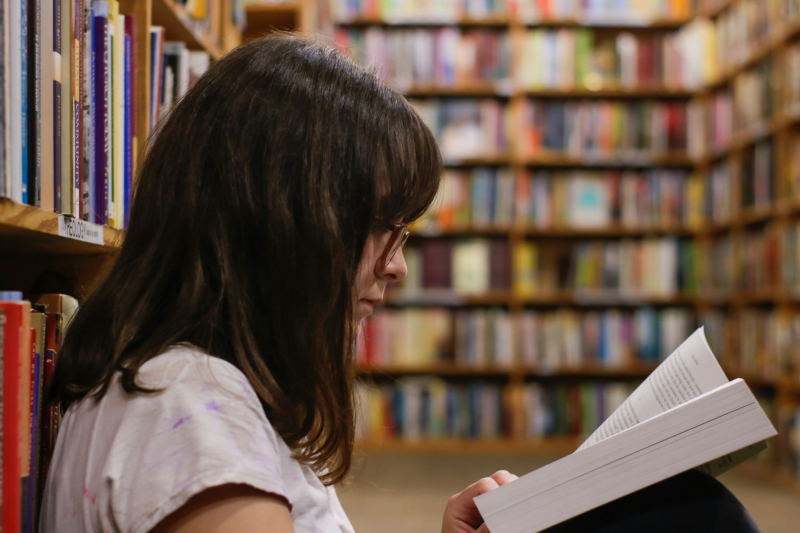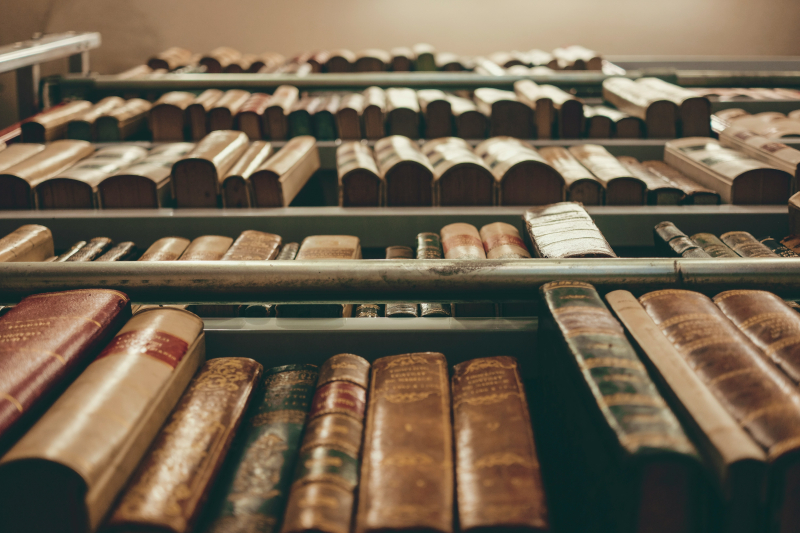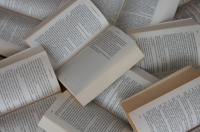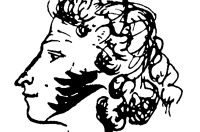You might consider reading primarily as a form of entertainment, but it’s actually a great means of studying! Natalia Kondrashova, a Russian language teacher at ITMO, notes that she not only suggests fiction to her students for additional reading but also incorporates it into her teaching practice, as it helps illustrate specific language features and enhance the students' phonetic, vocabulary, and grammar skills.
To help you boost your skills and get a better understanding of the local culture, Natalia and her colleagues at ITMO Foreign Language Training Center, Svetlana Dorofeeva and Oksana Kolegova, have picked their recommendations for all proficiency levels.
All of the books mentioned here are available for ITMO students via LitRes with a free subscription from ITMO.
Contents:
Begginer (A1)
Even if you’re only at the start of your language-learning journey, you can already read fiction! Opt for short stories that have a neutral vocabulary and simple sentences that will allow you to grasp the very basics. At this point, children's stories and poems can become your best friends.
According to Natalia Kondrashova, this is the scenario where you can go with adapted literature, which meets all the above-mentioned requirements. These versions, however, are not advised for higher levels as they often lack the author's unique style.
What to read:
Adapted stories
- Adapted books by Zlatoust publishing house, such as Anton Chekhov's stories
- Удивительные истории (Wonderful Stories), a collection of adapted stories by Natalia Novikova and Olga Scherbakova (available as a hard copy at the ITMO Library)
Children's books
Elementary (A2)
Like with the previous level, it’s recommended to focus on rather short pieces with a neutral vocabulary and uncomplicated syntax. However, you should now be able to understand longer sentences, simple metaphors and idioms, as well as vocabulary related to culture and history. Don't rush into complex meanings and philosophical implications; you can master them at higher levels.
What to read:
Storybooks
Poems
- Утро (The Morning) by Alexander Tvardovsky
- Камыши (The Reeds) by Konstantin Balmont
- Ноктюрн (Nocturne) by Igor Severyanin
Children's books
- Ступеньки (Stairs) and Метро (Metro) by Nikolay Nosov
- Дядя Фёдор, пёс и кот (Uncle Fedya, His Dog, and His Cat) by Eduard Uspensky
Credit: Elliot Reyna (@eliottreyna) via Unsplash
Intermediate (B1)
Having reached this stage, you can finally transition to larger books and rely less on children's literature. You are now able to comprehend texts with complex sentences, but it is important to remain cautious of rare and archaic terms, as they may require a deeper understanding of Russian history.
What to read:
Golden Age literature
- Ася (Asya) and Первая любовь (First Love) by Ivan Turgenev
- Метель (The Blizzard) and Пиковая дама (The Queen of Spades) by Alexander Pushkin
- После бала (After the Ball) by Leo Tolstoy
20th century
- Вам и не снилось (Could One Imagine?) by Galina Sherbakova
- Денискины рассказы (The Adventures of Dennis) by Viktor Dragunsky
Poems
-
Дом, который построил Джек (The House That Jack Built) by Samuil Marshak (great for learning participles)
Modern detective stories
- Detective novels by Tatiana Ustinova
Upper intermediate – advanced (B2-C2)
Your proficiency enables you to choose literature with deeper meanings, necessitating an understanding of Russian history and realities. You'll encounter vocabulary of various styles and layers of speech: slang, archaisms, and emotionally charged expressions. And the best part is that you’ll probably get the puns!
Don’t feel discouraged if despite a high level of fluency, you’re still missing some details or facing unknown words and constructions. As Natalia Kondrashova points out, reading literature in its original language presents challenges to non-native speakers at any level, as it encompasses the full range of linguistic nuances of the original text.
What to read?
Golden Age literature
-
Fairytales by Alexander Pushkin
20th century
- Письма о добром и прекрасном (Letters about the Kind and Beautiful) by Dmitry Likhachev
- Завтра была война (Tomorrow Was the War) by Boris Vasilyev
- Юмористические рассказы (Humorous Stories) by Mikhail Zoshchenko
Modern fiction
- Generation П and Желтая стрела (The Yellow Arrow) by Viktor Pelevin
- Узелки (The Knots) by Evgeny Grishkovets
If you’d like to up your reading practice, ITMO is always here to support your pursuits! To broaden your literary horizons, join the Russian Speaking Club.
Poetry enthusiasts are welcome to join the Poetic Map of the World project. At this regular international event, readers read poems in Russian, as well as Russian translations of poems in their native languages.




